
by Victoria Silverwolf
A few days ago, folks in the Soviet Union must have been surprised to see nudity on their television sets. Nude scenes from the controversial new play Oh, Calcutta! and photographs of sex magazines appeared on one of the Soviet Central Television networks.
The intent was not to titillate the audience (although that may have been an accidental side effect) but to point out the decadence of American culture.
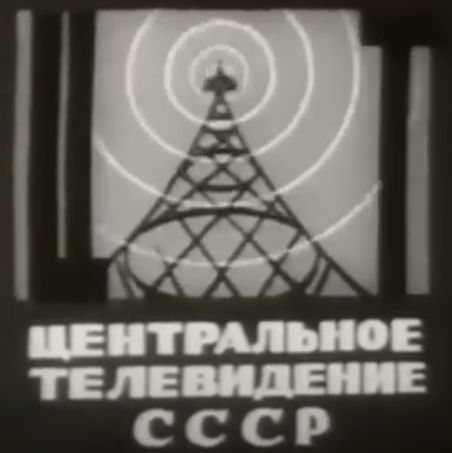
The Soviet station's logo. You didn't expect me to show you the nudity, did you?
What does this have to do with the latest issue of Fantastic? Keep your hat (and other clothing) on and you'll find out.

Cover art by Johnny Bruck.
As usual, the cover is (ahem) borrowed from a German publication.

The original always looks better.
Editorial, by Ted White
The new editor introduces himself. He relates how he failed to produce a fancy, expensive magazine called STELLAR Stories of Imagination. Some of the stories intended for that stillborn publication will appear in Fantastic and Amazing. He also promises to provide what he calls different stories in the magazines. We'll see.
No rating.
What's Your Excuse, by Alexis Panshin
Here's a tale that was supposed to appear in STELLAR. A professor plays a trick on a graduate student who is in his late twenties, but who appears to be in his teens. The student has his own secret up his sleeve.
It's hard to say too much about this brief yarn, which depends entirely on its premise. Is it different? Yeah, I guess so. Is it good? Well, maybe not. A trivial oddity.
Two stars.
The Briefing, by Randall Garrett
Another very short story. The narrator is aboard a spaceship. He's about to be sent down to a planet in disguise, in order to shorten an impending Dark Ages.
Without giving away anything, let's just say that you may be able to predict the twist ending. Extra points for being a bit of a dangerous vision, at least.
Three stars.
Emphyrio (Part Two of Two), by Jack Vance
Taking up half the magazine is the conclusion to this new novel.

Illustrations by Bruce Jones (obviously.)
We first met our hero, Ghyl Tarvoke, with his head literally cut open. His brain controlled by those holding him prisoner, he was forced to tell the truth.
This led us into a long flashback, from Ghyl's childhood until he decided to run for mayor under the pseudonym of Emphyrio, the name of a semi-legendary hero.
Part Two begins with Ghyl losing the election, but coming in third. That's enough to draw the attention of the authorities. Ghyl's father was already in trouble with them, and the situation only gets worse.
After the death of his father, Ghyl agrees to join his friends in a plot to steal a starship from the Lords and Ladies who rule his world. He makes them promise not to do any killing or kidnapping or pillaging after this single crime. Don't expect any honor among thieves.
Ghyl winds up leading a group of Lords and Ladies through the wilderness of another planet. The place is full of dangerous animals and people.
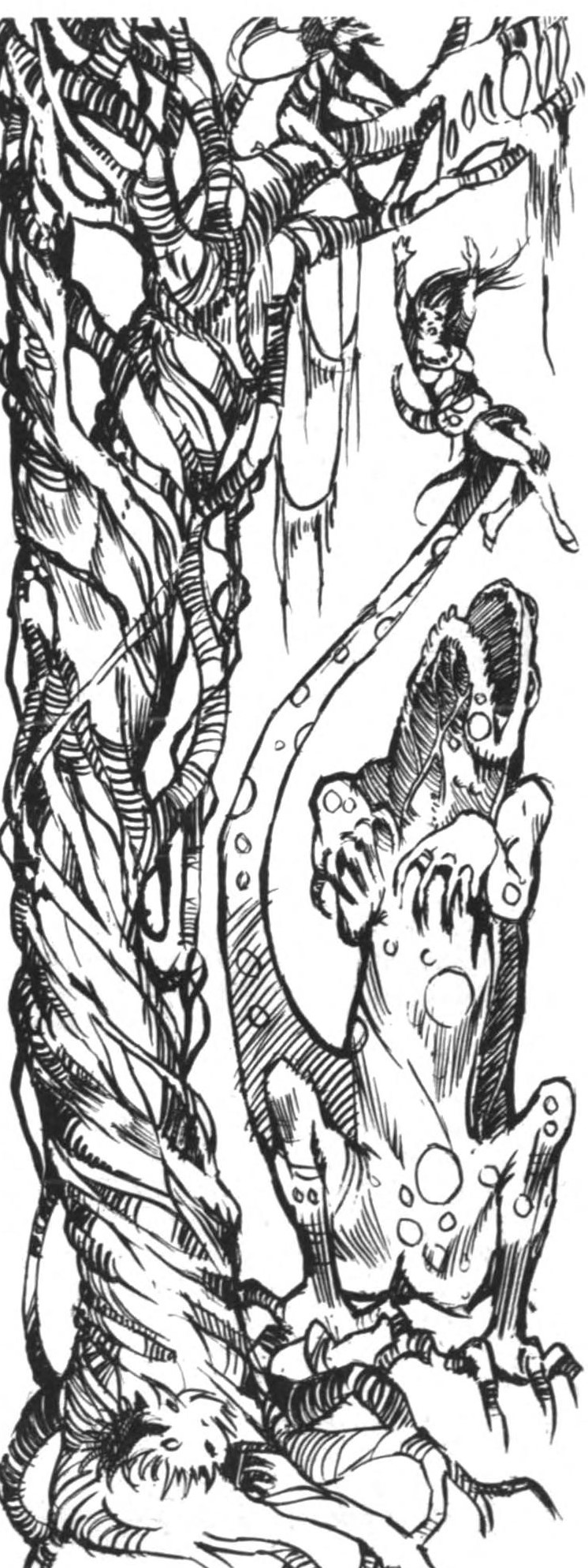
Out of the frying pan and into the fire.
He is eventually captured (leading back to our opening scene of interrogation) and sentenced to exile. However, there are a lot more adventures ahead, as he discovers the truth about the Lords and Ladies, and about the real Emphyrio.
Last time I said that the novel was very good, but maybe a bit leisurely and episodic. It turns out that incidents I thought were of little importance have great significance. I underestimated the intricacy of the author's tightly woven plot. At least I acknowledged his ability to create complex, imaginative worlds and cultures.
Five stars.
On to the reprints! They all come from old issues of Fantastic. Apparently the new editor prefers to avoid taking things from Amazing Stories and Fantastic Adventures, which may be a good thing.
Let's Do It For Love, by Robert Bloch
The November/December 1953 issue is the source of this farce.
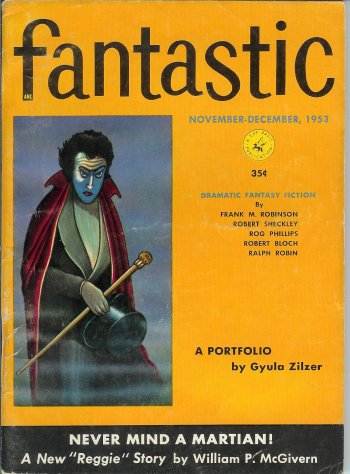
Cover art by Vernon Kramer.
A guy invents some stuff that makes folks love everybody. The narrator is a public relations agent who tries to promote the wonderful chemical. Too bad nobody wants universal siblinghood.
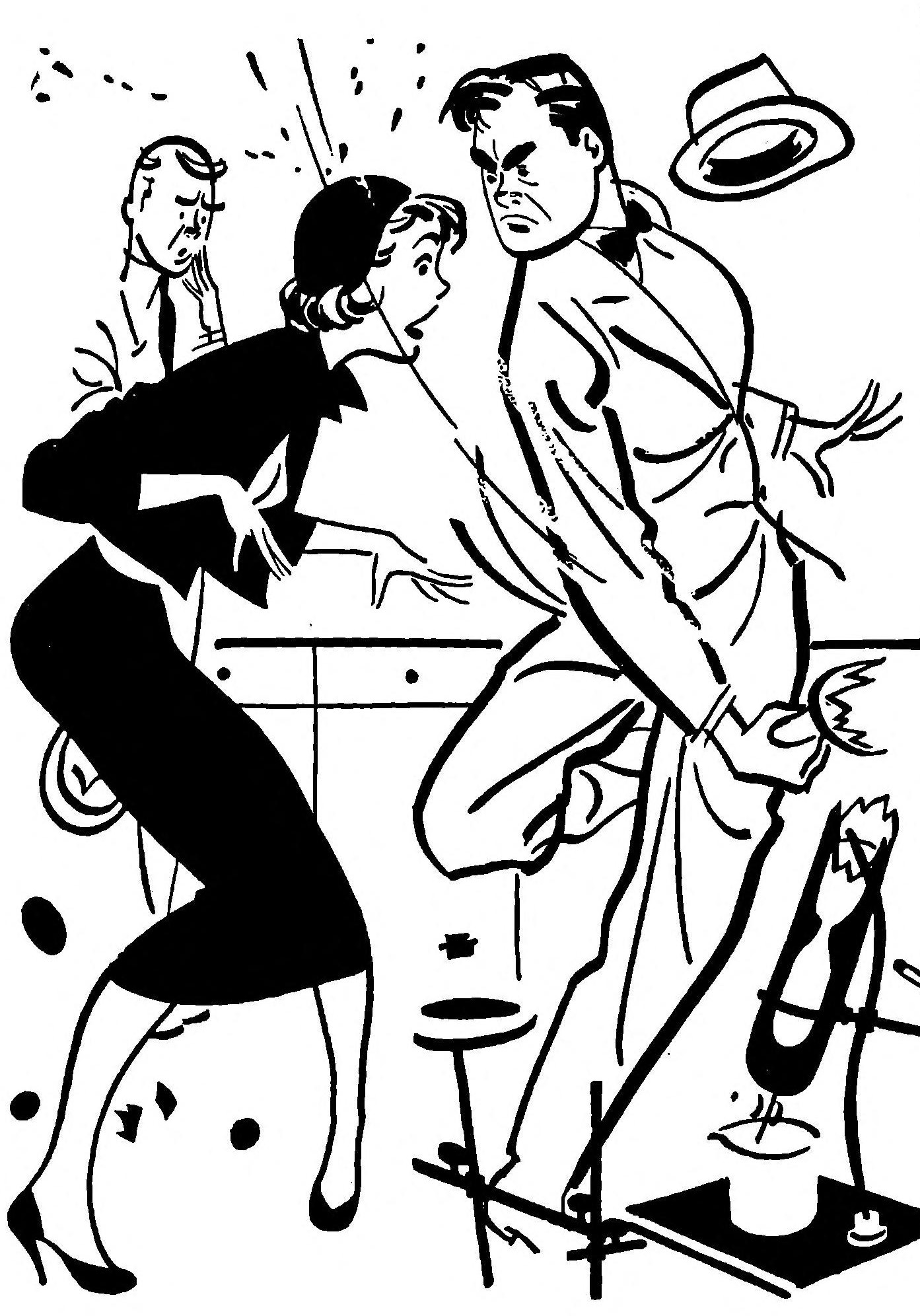
Anonymous illustration.
There's a touch of satire, of course, but this is mostly just a silly romp, full of wacky jokes and tomfoolery. If that's your thing, fine. The way the story deals with the inventor's shrewish wife may not please too many readers.
Two stars.
To Fit the Crime, by Richard Matheson
This ironic tale comes from the November/December 1952 issue.
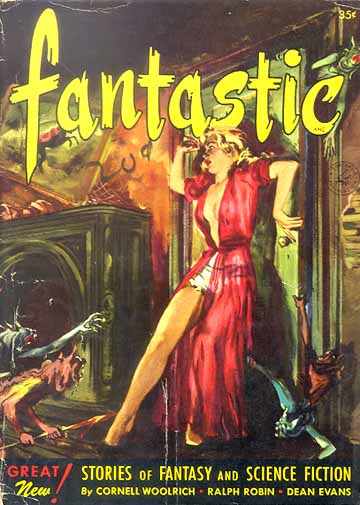
Cover art by Barye Phillips.
A curmudgeonly poet insults his relations in creative ways as he lies dying. In the afterlife, he faces an appropriate fate.
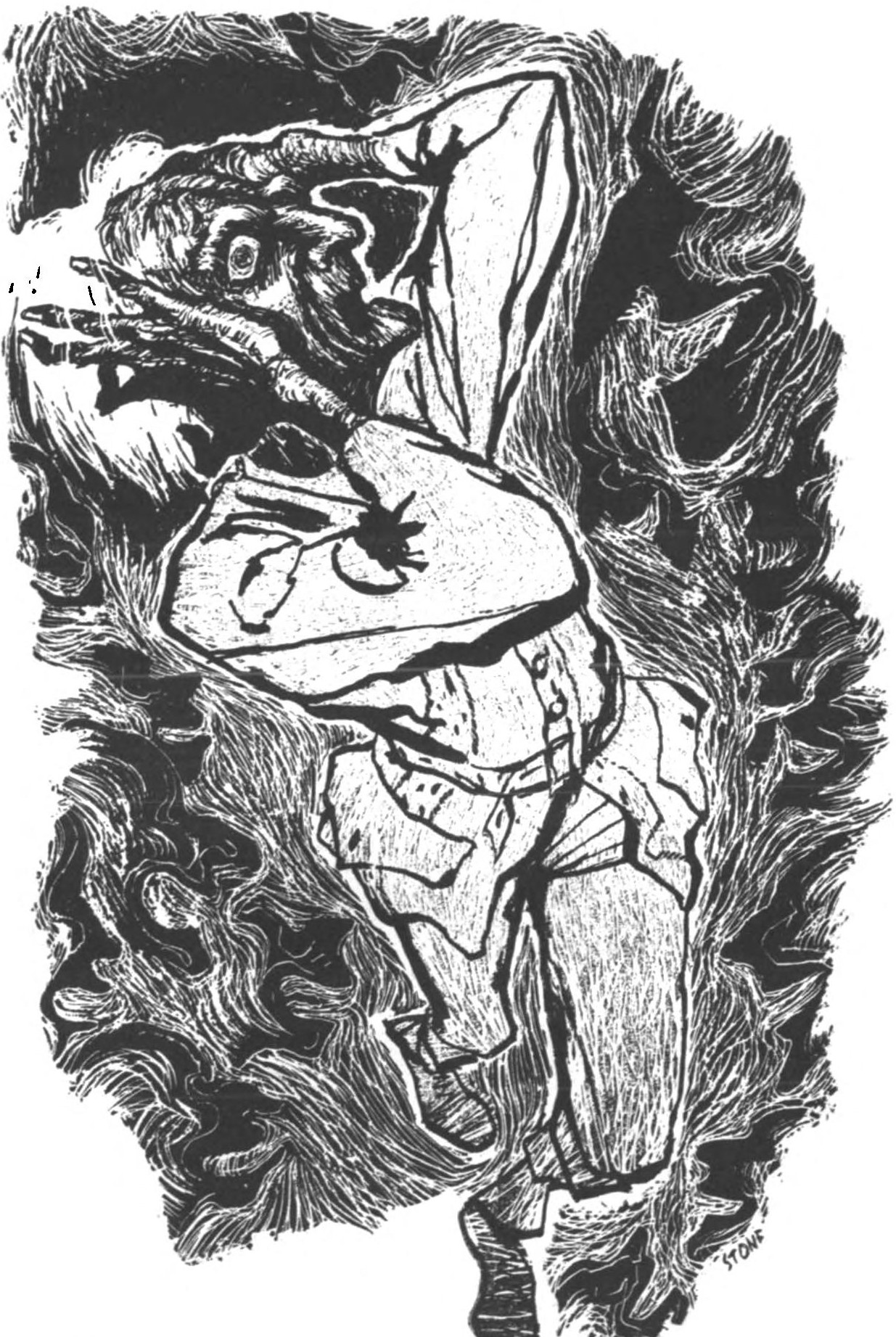
Illustration by David Stone.
There's not much to this except for the poet's way with words. The unpleasant fellow's version of perdition may cause some amusement.
Two stars.
The Star Dummy, by Anthony Boucher
The Fall 1952 issue provides this lighthearted story.
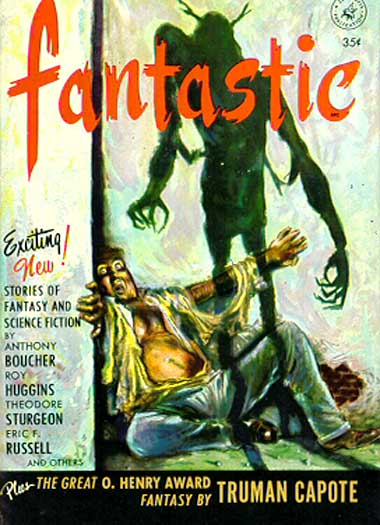
Cover art by Leo Summers.
A ventriloquist imagines that his dummy talks to him. Oddly, that's not really what the story is about. It actually deals with a goofy-looking alien, newly arrived on Earth, looking for his vanished mate. The extraterrestrial and the ventriloquist wind up helping each other.
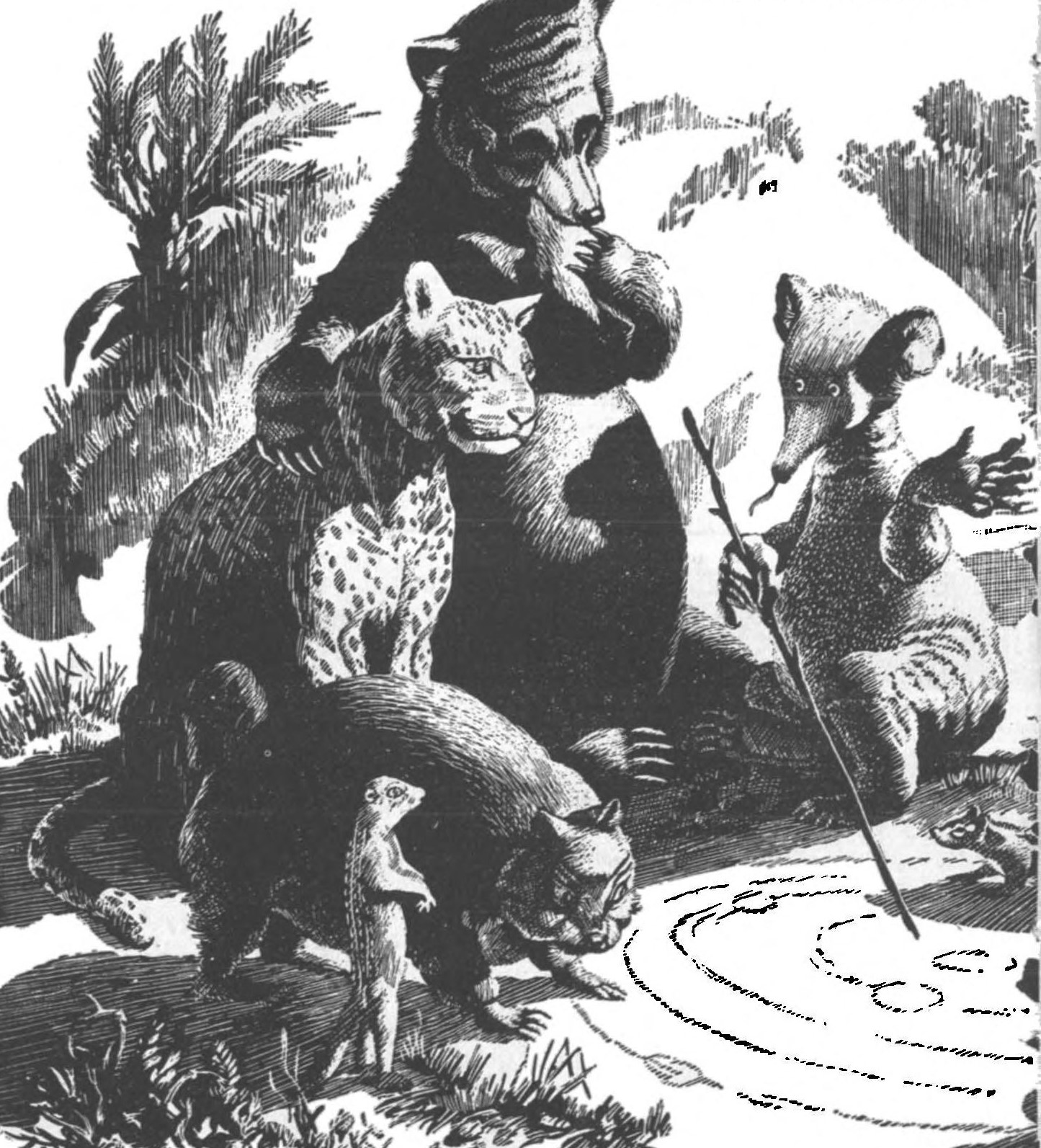
Illustration by Tom Beecham.
This is mostly a comedy, of a very gentle sort. One unusual aspect of the story is that it also deals with the ventriloquist's religious faith. There's some discussion of science fiction itself as well.
Slightly eccentric, moderately entertaining.
Three stars.
Fantasy Books, by Fritz Leiber and Ted White
Leiber discusses three new novels that add explicit sex to science fiction plots. (I told you I'd get to that!) For the record, the trio consists of The Image of the Beast by Philip Jose Farmer, The Endless Orgy by Richard E. Geis, and Season of the Witch by Hank Stine. Leiber gives them mixed reviews, but welcomes the new frankness with which they describe sexual behavior.
The editor offers a long, glowing review of Isle of the Dead by Roger Zelazny. I liked it, too.
No rating.
The Hungry, by Robert Sheckley
Back to reprints. This one comes from June 1954 issue.
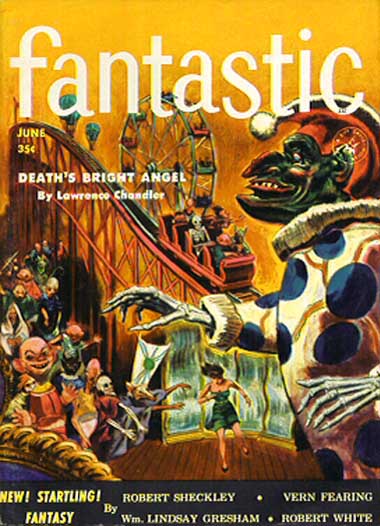
Cover art by Ernest Schroeder.
A malevolent thing preys upon the negative emotions and physical suffering of a young married couple. Only the baby of the family and the pet cat can see it. The infant does what it can to help.
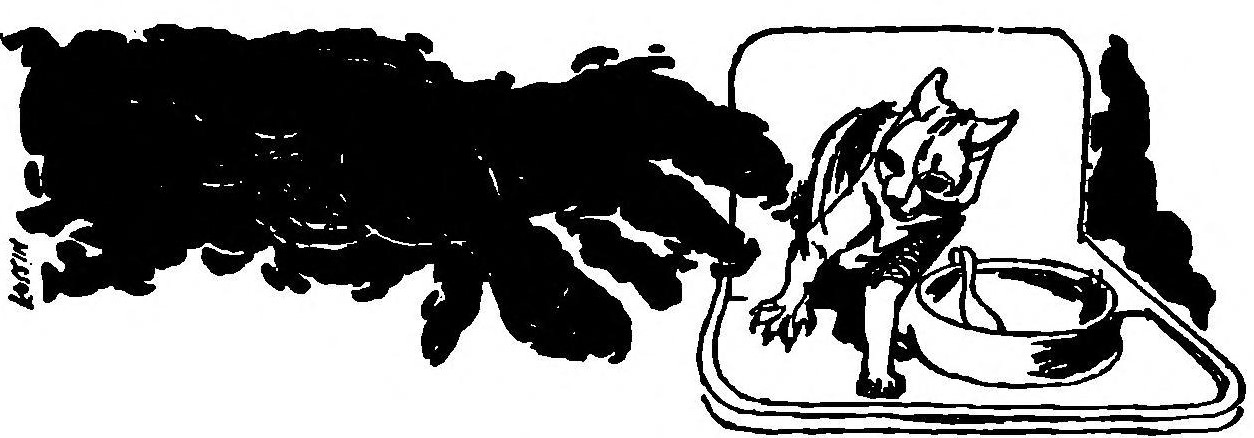
Illustration by Sanford Kossin.
Told from the viewpoint of the baby, this is an offbeat little story. Minor, but nicely done.
Three stars.
The Worth of a Man,by Henry Slesar
The June 1959 issue supplies this grim tale.
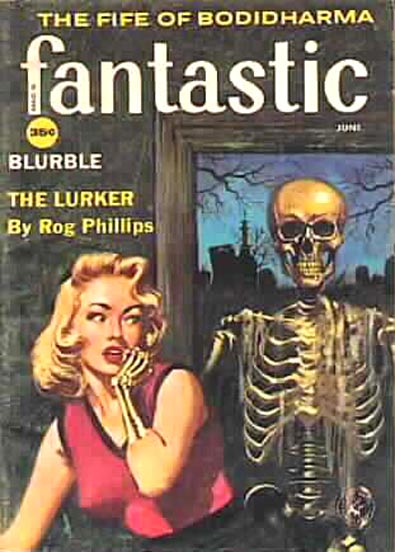
Cover art by Ed Valigursky.
A veteran of a future war has much of his body replaced with metal parts. He talks to a psychiatrist about his sense that somebody is out to hurt him.
Of course, his supposed paranoia is more than a delusion. What happens to him is disturbing, which is apparently the author's intent. I found it to be a powerful and all-too-plausible chiller.
Four stars.
Fantasy Fandom, by Ted White and Bill Meyers
I wasn't even going to discuss, let alone rate, this new column from the editor, in which he intends to reprint writings from fanzines. However, the first one knocked me out.
First published in Void, White's own fanzine, the essay by Meyers relates the writings of J. R. R. Tolkien to the author's childhood. It's a thoughtful, elegantly written piece, not so much about Tolkien as it is about the way that our early years influence how we react to literature.
I may be prejudiced in its favor, because Meyers grew up in the Chattanooga area, where I currently reside.
Five stars.
The Naked Truth
That was a very mixed bag of an issue. One excellent novel, one excellent essay, stories old and new ranging from below average to above average. You might want to skip some of the lesser pieces and go see a play instead.

The cast of Oh, Calcutta! You didn't expect me to show you the nudity, did you?

![[July 10, 1969] Sex! Now That I Have Your Attention . . . (August 1969 <i>Fantastic</i>)](https://galacticjourney.org/wp-content/uploads/2024/07/COVERSMALL-672x372.jpg)

